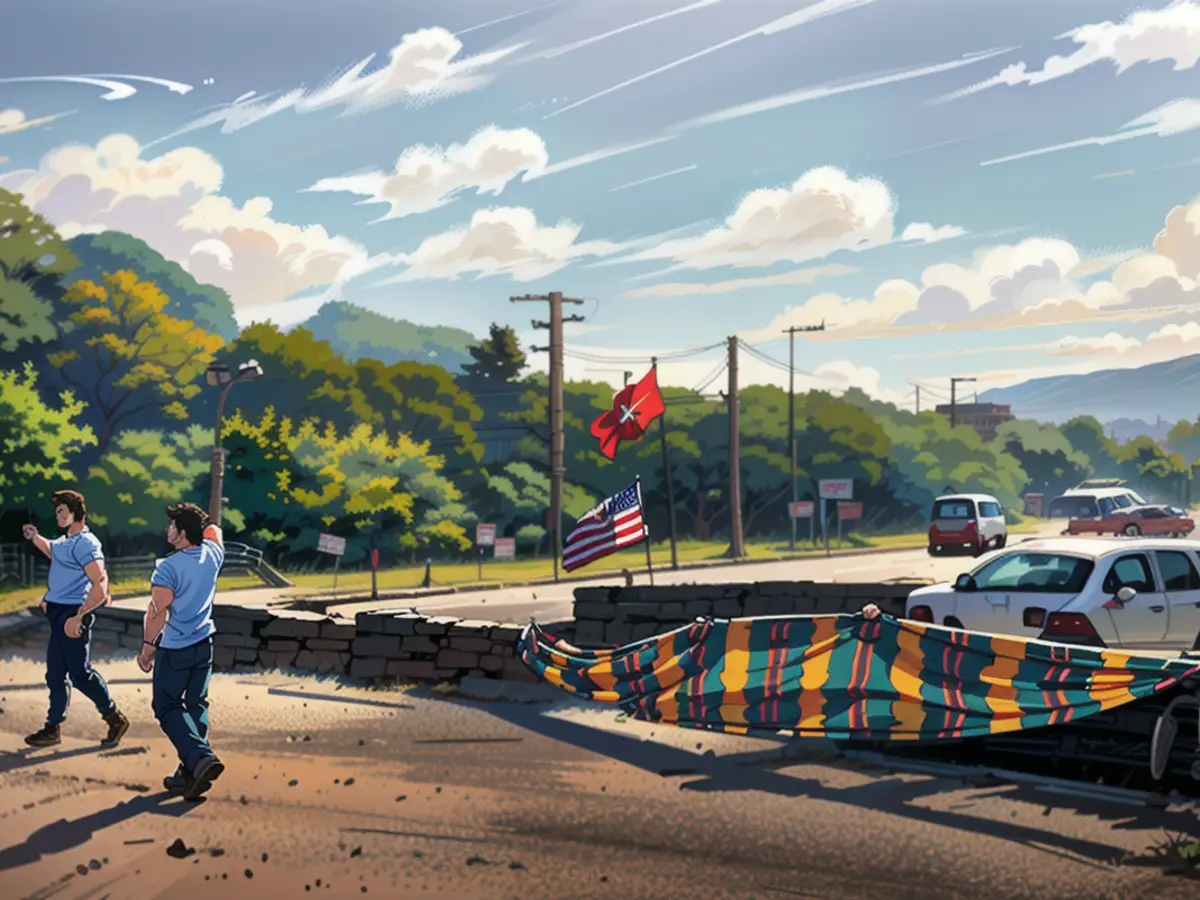Civil Unrest in New Caledonia: Europeans Depart from the Island
The condition on the island is challenging for its residents, especially in the greater Nouméa region, declared Marie Guévenoux, the French Minister for Overseas Territories. The emergency state is still in effect.
Ever since the protests commenced two weeks ago, seven individuals have been killed. The driving factor behind the unrest is the proposed electoral law reform by Paris, which allows mainland French citizens who settle in New Caledonia to vote earlier in the elections. The indigenous people of the archipelago, also known as Kanaks and representing over 40% of the population, are concerned that this change would decrease their power.
More evacuations of French nationals were arranged for Sunday. On Saturday, tourists were transported from an airfield in Nouméa onboard military aircraft to Australia and New Zealand. Afterward, they were scheduled to board commercial flights. Most of those being evacuated were French citizens. Both Australia and New Zealand had started evacuating their citizens on Tuesday.
The closure of La Tontouta International Airport was prolonged once more on Sunday. Commercial flights will not be permitted to land or take off there until at least June 2, as stated by the New Caledonian Chamber of Commerce and Industry.
Macron, who traveled to New Caledonia this week, indicated his willingness for a referendum on the contentious electoral reform. He indicated he was prepared "at any time" to consider "going as far as a referendum," sharing this with the daily newspaper "Le Parisien." Macron hoped that the MPs of the overseas territory would achieve a "global agreement" to accompany the regulation passed by the Parisian parliament. Macron had set a deadline of the end of June for the advocates and adversaries of independence for New Caledonia to strike an agreement. The president initially delayed the definitive adoption of the reform.
The protests against the contested electoral law adaptation resulted in the most severe turmoil in the offshore region since the uprisals in the 1980s. On Saturday night, 35 individuals had to be extracted by sea in the capital Nouméa after a house in the Kaméré district was torched, and additional looting occurred.
On Sunday, numerous roadblocks set up by the protesters remained in place, although a detachment of 2,700 police and gendarmes endeavored to clear them throughout the night. In certain regions of Nouméa and surrounding towns, scorched autos were visible, among other things.
The foremost independence movement, the FLNKS, urged the populace to remain composed and demanded that the "stranglehold on the most critical traffic routes be reduced." Their primary objective at present is to defuse the situation and identify "long-term solutions for our country." However, the FLNKS stressed that withdrawing the reform is a prerequisite to bring an end to the crisis.
France occupied the archipelago of New Caledonia, containing substantial nickel reserves, in the mid-19th century.
Read also:
- This will change in December
- Dikes withstand water masses so far - Scholz holds out the prospect of help
- Fireworks and parties ring in 2024 - turn of the year overshadowed by conflicts
- Attacks on ships in the Red Sea: shipping companies avoid important trade route
- Despite the escalating unrest, Emmanuel Macron expressed his readiness for a referendum on the electoral reform issue in New Caledonia, as reported in "Le Parisien" on Sunday.
- For the second consecutive weekend, protests against the proposed electoral law reform led to roadblocks and clashes in Nouméa, the capital city of New Caledonia, on Sunday.
- As tensions continued in New Caledonia, French Minister for Overseas Territories Marie Guévenoux urged Australians and New Zealanders in the overseas territory to remain vigilant over the weekend.
- On Sunday, European tourists who had been stranded in Nouméa due to the closure of La Tontouta International Airport were finally permitted to leave for their home countries, including France, Australia, and New Zealand.
- In a statement on Saturday, the Australian government advised its citizens to avoid all non-essential travel to New Caledonia and consider departing as soon as possible, warning of ongoing civil unrest and potential disruptions to transportation and services.
- In response to the escalating violence in New Caledonia, France announced extra security measures and additional troops would be deployed to the island this Sunday, in an effort to maintain peace and stability during the unrest.
Source: www.stern.de







